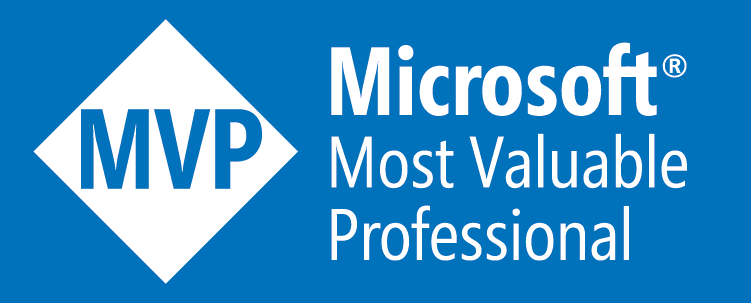Hi!
Kubernetes 1.31 is no exception, delivering several important improvements to keep clusters secure and resilient against potential threats. Here’s an overview of the key security announcements in this release:
1. Pod Security Admission (PSA) Reaches Stability
The Pod Security Admission (PSA) mechanism is now officially stable. PSA replaces the deprecated PodSecurityPolicy (PSP) and offers a more flexible, declarative approach to enforcing security standards at the namespace level. Administrators can define security controls for workloads such as privilege escalation, root filesystem protection, and use of host namespaces. PSA helps improve security posture by allowing namespaces to be tagged with predefined security levels (privileged, baseline, and restricted).
Key Features:
- Namespace-level enforcement: Apply policies to groups of workloads.
- Built-in security standards: Use baseline or restricted policies for easier adherence to best practices.
- Ease of adoption: PSA can be incrementally rolled out, allowing for smoother migrations from PSP.
2. Improved Supply Chain Security with SBOM Support
As supply chain attacks continue to be a concern, Kubernetes 1.31 strengthens its focus on securing the components used to build clusters. One major update is the inclusion of Software Bill of Materials (SBOM) support. Kubernetes artifacts now provide detailed SBOM data, helping users track the components and dependencies in their Kubernetes deployments.
Benefits of SBOMs:
- Increased transparency: Identifies the origin of components and dependencies.
- Mitigation of risks: Makes it easier to assess the security impact of vulnerabilities in third-party packages.
- Compliance support: Facilitates adherence to regulations such as the U.S. Executive Order on Improving the Nation’s Cybersecurity.
3. Enhanced Runtime Security with seccomp Profiles
Kubernetes 1.31 improves container runtime security by enhancing its support for seccomp profiles. These profiles are now better integrated with the Kubernetes API, enabling easier customization and enforcement of syscall restrictions at the container level. Seccomp, which allows users to filter system calls, helps minimize the attack surface of containerized applications.
New Capabilities:
- More granular control: Cluster operators can define custom seccomp profiles to match the specific security requirements of their workloads.
- Enhanced default profiles: Kubernetes now ships with improved default seccomp profiles, which can be applied to clusters more easily.
- Automated profile generation: New tools simplify the creation and management of seccomp profiles.
4. Graduation of CSI Node Volume Limits to GA
The CSI Node Volume Limits feature has been graduated to General Availability (GA), providing stronger security controls over volume usage at the node level. This feature allows Kubernetes to enforce limits on the number of volumes attached to a node, mitigating the risk of resource exhaustion and denial-of-service (DoS) attacks that target volume saturation.
Key Security Impact:
- Resource isolation: Prevents malicious workloads from overwhelming nodes by attaching excessive volumes.
- Improved resiliency: Ensures stable operation of critical workloads by limiting volume attachments.
5. Credential Management with Kubernetes Secrets
Managing sensitive information like API keys, tokens, and passwords is crucial for securing applications running on Kubernetes. Kubernetes 1.31 continues to enhance its Secret Management capabilities. In this release, there’s a focus on improving security by encouraging the use of external secrets management systems like HashiCorp Vault and AWS Secrets Manager, allowing better handling of credentials without storing them directly in etcd.
Key Updates:
- Improved integration: Kubernetes now supports a wider range of external secret stores.
- Reduced attack surface: Offloading secret management to specialized tools helps minimize the risk of secret exposure.
6. API Server Network Proxy Enhancements
Securing communication between the control plane components is another important focus of Kubernetes 1.31. Updates to the API Server Network Proxy improve network security by adding support for more advanced traffic routing and encryption options. This allows for better isolation of sensitive control plane traffic from user-facing workloads.
Key Enhancements:
- Advanced traffic routing: Securely route traffic between clusters and control plane components.
- Improved encryption: Strengthened encryption algorithms for better data protection during transit.
- Expanded network policies: More granular controls for managing inter-component traffic.
Conclusion
Kubernetes 1.31 delivers a solid set of security enhancements aimed at improving both platform-level and workload-level security. From the stabilization of Pod Security Admission to the graduation of key features like CSI Node Volume Limits, this release strengthens Kubernetes’ defenses against emerging threats. Whether you’re an operator or a developer, these changes are designed to simplify the adoption of security best practices while protecting your clusters from potential attacks.
Stay tuned for further deep dives into these features and how you can implement them in your Kubernetes environments!
Reference: https://kubernetes.io/blog/2024/08/13/kubernetes-v1-31-release/
